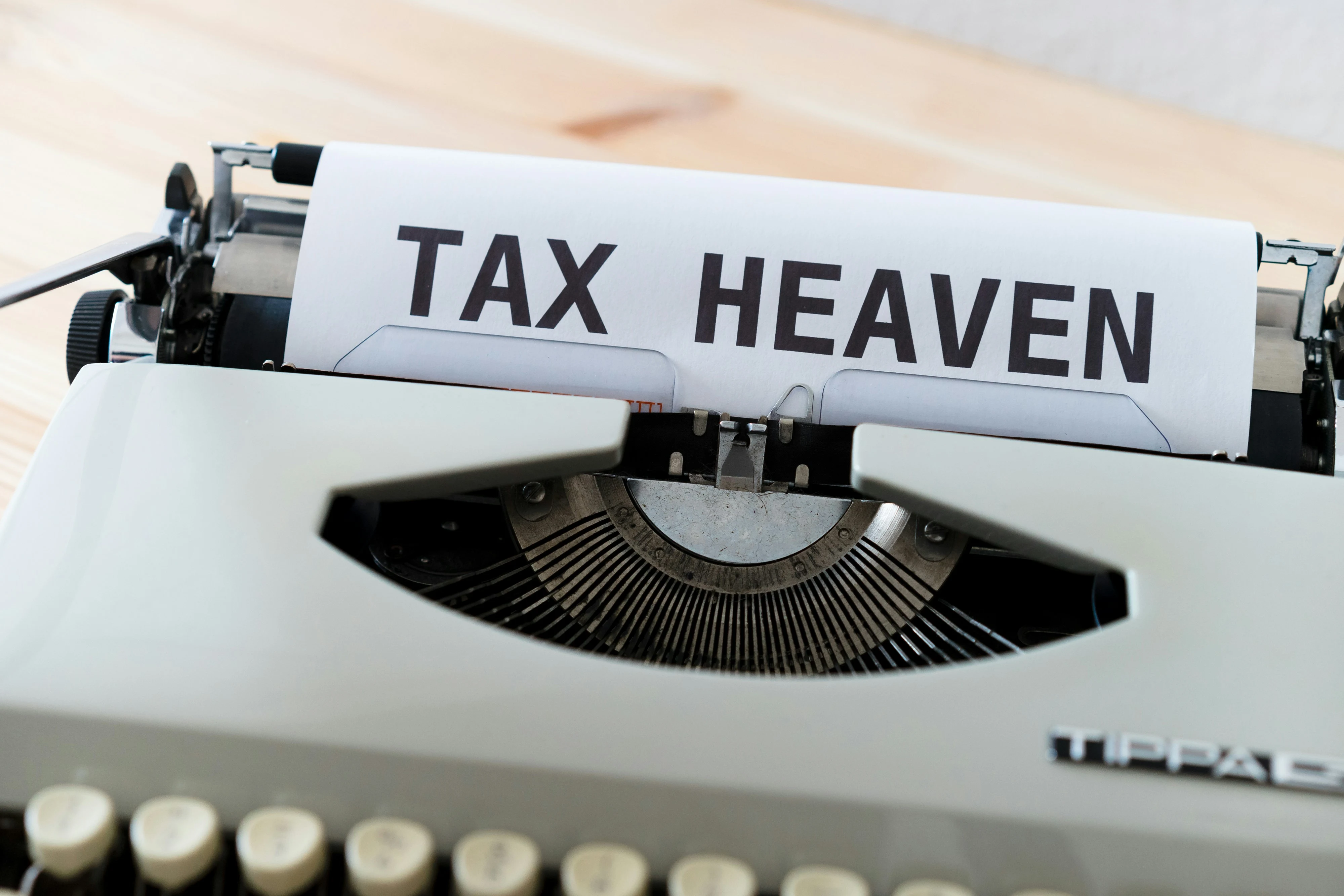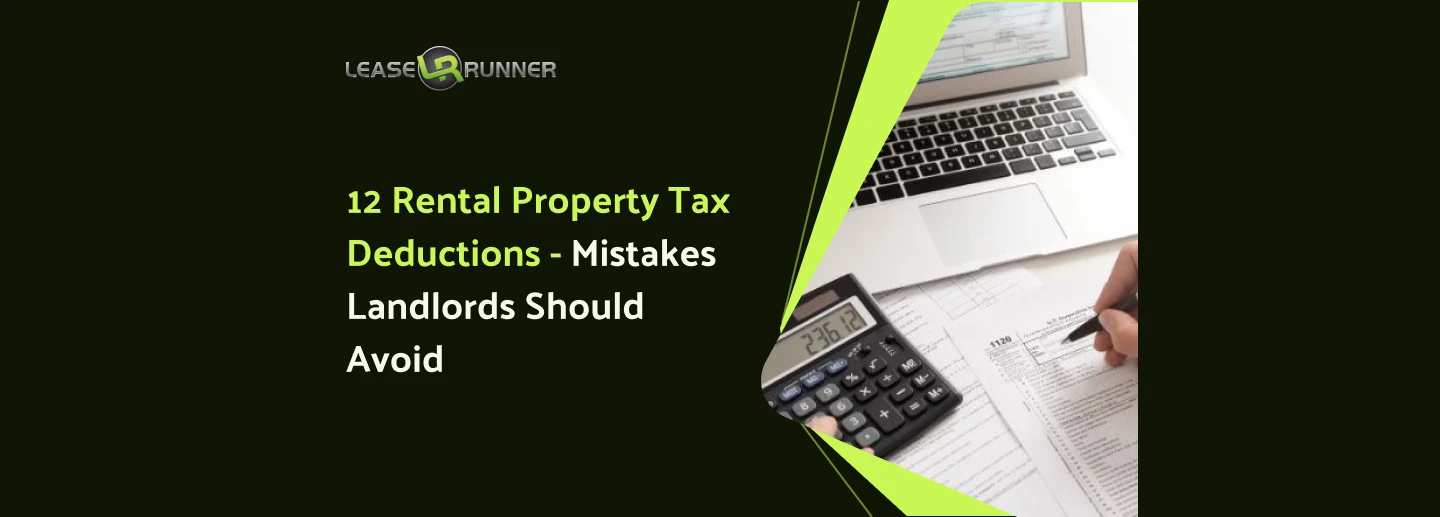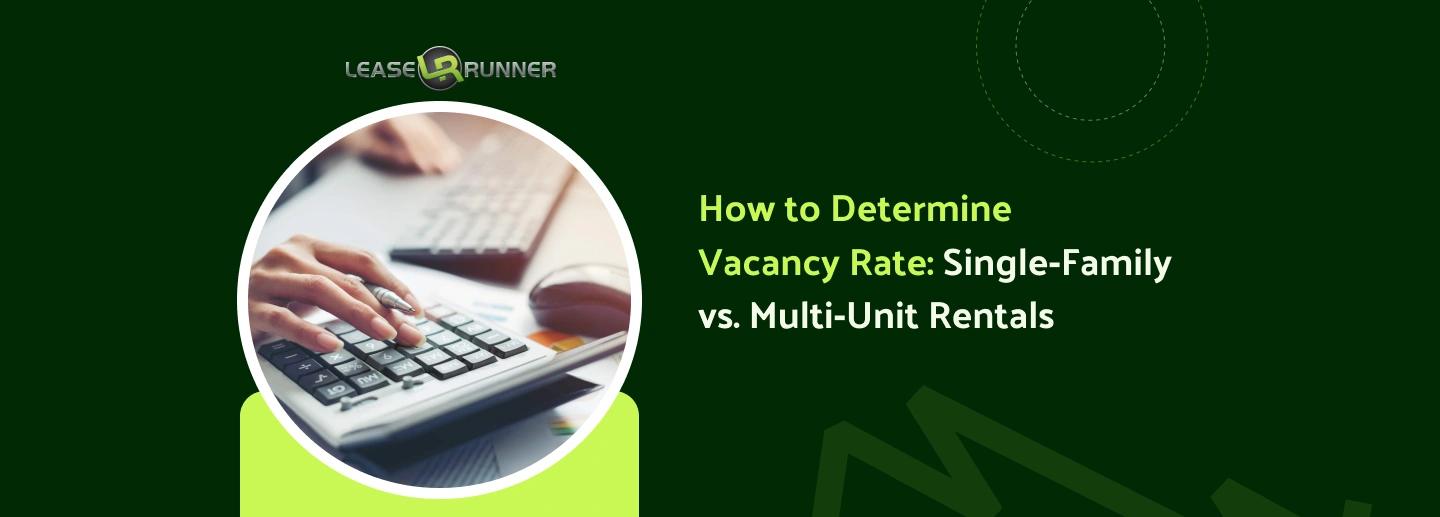Having a rental property lets you use several rental property tax deductions to cut your taxes. Included in these deductions are property management expenses, repairs, and mortgage interest write-offs for rental properties. You retain more of your rental income if you know which rental property costs are tax-deductible.
Knowing these rules can help you save a lot of money from tax advantages of rental property to important landlord tax benefits. This article lists the most important rental property tax deductions landlords should be aware of. Strategic use of these real estate deductions will lower your tax load and increase your rental income.

What Are Rental Property Tax Deductions?
Rental property tax deductions are qualified expenses associated with operating and maintaining a rental home, apartment, or commercial property that you can subtract from your gross rental income. Essentially, they represent the costs of doing business as a landlord, and are considered ordinary and necessary expenses. The process of claiming these expenses is often referred to as using rental property tax write-offs.
The core purpose of these deductions is to ensure you are only taxed on your net profit, not the total rent you collect. By reducing your taxable income, deductions lower your overall tax bill.
If you’re renting out part of your home, it’s also helpful to understand the difference between subletting vs. subleasing and how the IRS views the rental income generated from these arrangements.
How Deductions Work
When you file taxes for your rental activity (typically on IRS Schedule E in the U.S.), you report:
- Gross Rental Income: All rent and fees collected.
- Deductible Expenses: The sum of all qualified costs (like mortgage interest, repairs, and management fees).
The result is your taxable income (or net loss). The larger your eligible rental property tax deductions (rental property tax write-offs), the smaller your taxable income, which is why accurately tracking every expense is crucial for maximizing your tax savings. You should also be aware of passive loss rules and how they may require you to file IRS Form 8582 if you cannot immediately offset other income.
Key Distinction: Deductions vs. Capitalized Costs
It's vital to know the difference between two types of expenses:
- Deductions (Expenses): Costs that are fully deductible in the year they are paid (e.g., small repairs, insurance, advertising).
- Capitalized Costs (Improvements): Costs that must be depreciated over several years because they add value or extend the property’s life (e.g., a new roof, major remodels).
Understanding and correctly categorizing these costs is the foundation of successful rental property tax management.
1. Mortgage Interest Deductions
Among the largest tax benefits available to landlords are mortgage interest deductions. The interest paid on loans used for the purchase or improvement of rental properties may be deducted. For instance, if you pay $12,000 annually in interest, you can subtract it from your rental income.
Key Rules to Know
- The loan must be secured by the rental property.
- Refinancing interest is deductible if the funds are used for rental purposes.
- Applies to mortgages on both residential and commercial rental properties.
How to Calculate Deductions When You Live in Part of the Property
If you rent out only part of your house, deductions must be prorated. For example, if the rental space is 25% of the home, you may deduct 25% of your total mortgage interest.
This deduction can be substantial and should always be claimed correctly on IRS Schedule E. Keeping accurate records will help you claim the full rental property tax deductions allowed by law.
2. Property Depreciation
Depreciation allows landlords to recover the cost of building (not land) their rental property over time instead of all at once. Residential properties are depreciated over 27.5 years, while commercial rentals are depreciated over 39 years. This deduction reflects wear and tear on the property and reduces taxable rental income, a core benefit of rental property tax deductions.
Key Rules
- Land value cannot be depreciated.
- Depreciation begins when the property is placed in service.
- Selling may trigger depreciation recapture tax.
- Understanding the property's value, or ARV in real estate, is necessary to establish the depreciable basis.
How to Calculate
First, determine your property’s cost basis: the purchase price plus closing costs, minus the land value. Then divide that depreciable basis by the recovery period. For instance, if you bought a rental for $220,000, with $40,000 allocated to land, your depreciable basis is $180,000. Dividing this by 27.5 years gives about $6,545 annual depreciation. If you began renting halfway through the year, you’d prorate this amount, applying the IRS “mid-month convention.” For improvements such as appliances or furniture, use shorter depreciation periods under IRS guidelines.
Depreciation is one of the strongest tools landlords have to reduce tax liability. It allows you to write off property costs gradually while maintaining positive rental property cash flow. When tracked correctly, it can save thousands of dollars over the life of your rental property. However, because of depreciation recapture at sale, landlords should plan ahead with tax professionals to balance benefits today against potential future tax obligations.
3. Repairs and Maintenance Costs
Repairs and maintenance are deductible in the year they occur. Fixing leaks, painting walls, or replacing broken appliances all qualify as immediate write-offs.
Key Rules
- Repairs maintain the property’s current condition and are fully deductible.
- Improvements that increase value or extend life must be depreciated.
- Accurate tracking is essential to demonstrate compliance with the deadline for when a landlord has to fix something and that the cost was necessary.
How to Calculate
Track the actual expense and claim it in the tax year paid. For instance, a $2,000 roof repair is deductible in full that year. However, replacing the roof for $20,000 must be capitalized and depreciated. The IRS also provides a Safe Harbor rule: if annual repair costs are under $10,000 or 2% of property value, they may be deducted immediately.
Repairs lower taxable income right away, while improvements spread deductions over years. Understanding the difference ensures landlords don’t overstate deductions and risk audits. Accurate records with receipts and tenant requests can help prove repair costs if questioned. For more detail, understand how long does a landlord have to fix something.

4. Property Management Fees
Fees paid to property management companies can be a rental property tax deductions. This covers eviction-related expenses, monthly management fees, and lease commissions.
For instance, your taxable rental income may be reduced by $3,900 per year if you pay $200 per month in management fees and a $1,500 lease-up charge. Managing your rental company includes these fees as normal and required costs.
Key Rules to Remember
- Even if the property is empty, you may deduct property management expenses.
- Legal costs connected to tenant conflicts or evictions are deductible as normal expenditures.
- Managing the property yourself means you cannot deduct your own time or work.
How to Calculate
Add up all payments to the property management company, including monthly charges, leasing commissions, and any legal costs they bill. For instance, paying $200 monthly plus a $1,500 leasing fee equals $3,900 in rental property tax deductions for the year. Online landlord platforms and software subscriptions also count.
Rental property tax deductions for management reduce taxable rental income and make outsourcing more affordable. Accurate invoices and statements are essential to support the deduction. For busy landlords, this rental property tax write-off can justify hiring professional help.
5. Insurance Premiums
Insurance costs for rental properties are fully deductible. This includes landlord liability, fire insurance, flood insurance, theft insurance, and other coverage.
Key Rules
- Premiums are deductible even during vacancies.
- Title insurance must be amortized, not deducted all at once.
- Health insurance for self-employed landlords is not deducted as a rental expense.
How to Calculate
Total your annual insurance premiums and claim them as a rental expense. If only part of your property is rented, prorate the deduction. For example, if 70% of your home is a rental unit, and your homeowner’s insurance is $1,000, you may deduct $700. Keep all policy documents and receipts.
Insurance deductions protect profits by lowering taxable income while covering unexpected risks. Many landlords forget this simple deduction, losing out on easy tax savings. Reviewing coverage annually ensures you maximize both protection and deduction value.
6. Travel Expenses for Property Management
Travel expenses related to managing your rentals are deductible, whether local trips or overnight stays.
Key Rules
- Maintain a mileage log with date, purpose, and miles.
- Only deduct business-related travel.
- Meals are 50% deductible if tied to overnight travel.
How to Calculate
For driving, use the IRS mileage rate ($0.63 per mile in 2025). A 200-mile round trip for a repair equals a $126 deduction. Overnight travel adds hotel and 50% of meals. For combined business and personal trips, only deduct the rental-related portion.
Travel deductions add up quickly for active landlords. They reduce costs of inspections, tenant meetings, and repairs. With accurate logs and receipts, landlords can save significantly while staying compliant.
7. Legal and Professional Fees
For landlords, claiming Legal and Professional Fees is among the most significant rental property tax deductions. Included in these charges are expenses for lease reviews (using resources like lease agreement templates), tax preparation, evictions, and expert rental verification services.
For instance, your taxable rental income would be reduced by $1,500 if you paid $500 to an accountant for tax assistance and $1,000 to a lawyer for eviction services. This reduces your total tax liability, which is a great landlord tax advantage
Key Rules
- Legal fees for property purchases must be capitalized, not deducted.
- Startup legal costs must be amortized over time.
- Ongoing rental-related services are fully deductible.
How to Calculate
Add up payments to accountants, attorneys, or consultants that directly relate to rental operations. For example, $500 for tax prep and $1,000 for eviction legal fees equals a $1,500 deduction. Track invoices separately from purchase-related costs.
Legal and professional deductions reduce taxable income while ensuring compliance. They also encourage landlords to seek expert help without worrying about losing profits. Proper categorization is key to maximizing this benefit.
8. Advertising Costs
For landlords, advertising expenses are a major rental property tax deductions. Expenses for advertising your rental property on websites like Zillow, Facebook, or newspapers might be deducted.
Key Rules
- Ads are deductible even if the property remains vacant.
- Website hosting for rental listings also qualifies.
- To maximize your search, be sure to deduct fees paid for checking applications, like those found on application fee for rental.
How to Calculate
Keep receipts for all ads—such as $50 on Facebook and $300 on Zillow—for a $350 deduction. Include payments to brokers or agencies for tenant placement.
Advertising deductions lower the cost of filling vacancies quickly. Since even small ad spends are deductible, tracking them ensures landlords don’t miss out on simple savings. To maximize your search, be sure to deduct fees paid for checking applications, like those found on application fee for rental.

9. Home Office Deduction
Landlords who use an area of their house just to run rental properties might qualify for the home office deduction. Based on the size of your office space, this deduction allows you to write off a portion of costs including mortgage interest, utilities if landlord pays a share, and maintenance.
You may deduct 10% of these costs, for instance, if your house is 2,000 square feet and your office is 200 square feet. The IRS also provides a simpler approach with a maximum $1,500 deduction, allowing $5 per square foot up to 300 square feet.
Key Rules
- The space must be used regularly and exclusively for rental business.
- It must be the principal place for managing rentals.
- The office cannot be located at the rental property itself.
How to Calculate
Use either the regular or simplified method. With the regular method, calculate the business-use percentage of your home and apply it to mortgage interest, utilities, and other expenses. For example, if your office is 10% of your home, and utilities are $3,000 annually, you may deduct $300. The simplified method allows $5 per square foot, up to 300 sq. ft. ($1,500 maximum).
The home office deduction turns household costs into business savings. It benefits landlords who manage multiple units from home, though strict rules apply. Documentation ensures eligibility and maximized deductions.
10. Property Taxes
Taxes on rental properties are deductible. This is a significant tax benefit for landlords that lowers taxable rental revenue. For instance, your rental income may be reduced by the whole $4,000 if you pay $4,000 a year in property taxes. If your properties are in a non-property tax state, you can omit this part.
State and local assessments, such as specific levies for pavements or street repairs, also qualify for this deduction. However, HOA dues are not deductible as property taxes.
Key Rules to Follow
- If your property is used for vacation home rentals or has a personal use 14 days rule limitation, property taxes must be prorated.
- You can deduct property taxes even if they are paid through an escrow account by your mortgage lender.
- Keep all tax bills and payment receipts to support your deduction claims.
How to Calculate
Review your annual tax bill and claim the rental-related portion. For example, paying $4,000 in property taxes reduces rental income by that full amount. Track bills separately for each rental property to avoid errors.
Rental property tax deductions for property taxes are often among the largest annual rental property tax write-offs. They reduce taxable income substantially and improve cash flow.
11. Depreciation
Beyond property depreciation, landlords may also depreciate improvements like new roofs, HVAC systems, or flooring.
Key Rules
- Improvements must add value or extend useful life.
- Depreciation schedules vary depending on the asset type.
- Bonus depreciation may allow upfront deductions for some upgrades.
How to Calculate
Determine the cost of the improvement and its recovery period. For instance, a $10,000 HVAC system depreciated over 27.5 years equals $364 annually. Shorter recovery periods apply to appliances or landscaping.
Depreciating improvements spreads costs over time while keeping taxable income lower each year. Landlords benefit from steady write-offs that offset rental profits, making reinvestments more affordable.
12. Utilities
Utilities paid by landlords, such as water, electricity, or gas, are deductible.
Key Rules
- Deduct only utilities you pay, not those tenants cover.
- If part of the property is owner-occupied, prorate expenses.
- Cable and internet are deductible if included in rent-to-income ratios or agreements as a tenant benefit.
How to Calculate
Add up annual bills for utilities tied to the rental. For example, if you cover $1,800 in tenant electricity costs, you may deduct the full amount. If 30% of the property is personal use, deduct only 70% of the bill.
Utility deductions reduce operating expenses and boost profitability. Clear separation of personal and rental use avoids mistakes. For multi-unit properties, keeping organized records ensures accurate claims for each rental.
How to Report Deductions on Schedule E?
To claim rental property tax deductions properly, landlords need to report them on IRS Schedule E (Form 1040). This form is designed for rental real estate and ensures your income and expenses are clearly documented.
- Step 1: Report rental income. Enter the total rent you received during the year. This includes not just monthly rent, but also application fees, late fees, or other income tied to the property. For more details on screening, check how to rent out a room in your house.
- Step 2: Record deductible expenses. Common categories include mortgage interest, property taxes, insurance, utilities, maintenance, and depreciation. Each expense reduces your taxable rental income.
- Step 3: List each property separately. If you own more than one rental, Schedule E requires you to report them individually, showing income and expenses for each.
- Step 4: Apply depreciation correctly. You’ll need to calculate annual depreciation for your building and any qualifying improvements. This deduction is often significant and should not be overlooked.
For example, If your rental property generates $20,000 in annual rent, and you record $13,000 in deductible expenses, Schedule E will show $7,000 as taxable net rental income.
Reporting on Schedule E ensures compliance while helping you maximize deductions. Done carefully, it creates a transparent record for the IRS and protects you from unnecessary tax burdens. Many landlords use tax software or consult professionals to avoid mistakes with depreciation or carryover losses.
Mistakes Landlords Should Avoid with IRS
Filing taxes for rental properties can get tricky, and small errors often lead to penalties or audits. Below are some of the most common mistakes landlords should watch out for:
- Mixing personal and rental expenses. For instance, replacing an appliance in your own home is not deductible, while replacing one in the rental unit is. Blending the two can cause deductions to be denied.
- Confusing repairs with improvements such as fixing a leaky faucet are deductible in the same year or installing a new HVAC system must be depreciated over several years.
- Forgetting small sources of income. Late fees, pet rent, or rent concessions are taxable and must be reported. Skipping them can raise red flags.
- Miscalculating depreciation. Errors happen when landlords fail to subtract land value or don’t claim depreciation at all, missing out on valuable deductions.
- Poor recordkeeping. Without receipts, invoices, and bank statements, it’s hard to prove deductions if the IRS asks for verification.
Avoiding these mistakes requires disciplined bookkeeping and a clear separation between personal and rental finances. By documenting every transaction and understanding IRS rules, landlords can confidently claim the rental property tax deductions they deserve while staying fully compliant.
Bottom Line
Maximizing rental property tax deductions means knowing IRS rules and keeping good records. From mortgage interest to home office deduction, these tax benefits of rental property can save landlords thousands each year.
Tracking all rental property expenses tax deductible helps you claim every dollar you deserve. Always consult a professional to stay legal and find smart tax loopholes for rental property that fit your situation. Using these landlord tax benefits well makes your rental business stronger and more profitable. For example, many landlords apply the 3 times the rent rule when screening tenants to secure reliable rental income, which in turn simplifies tax planning.
FAQs
Q1. Should I consult a tax professional?
Yes. A tax expert can help you navigate complex rules, find tax loopholes for rental property, and maximize your landlord tax benefits legally and safely.
Q2. Can I deduct repairs and improvements?
Yes, you can. Repairs that keep your property in good condition are fully deductible. Improvements that add value must be depreciated over time. Knowing the difference helps maximize your rental property tax deductions.
Q3. How does depreciation work for rental properties?
You deduct the property’s cost (minus land value) over 27.5 years for residential rentals. Depreciation is a key real estate deduction that lowers taxable income even if the property gains value.






